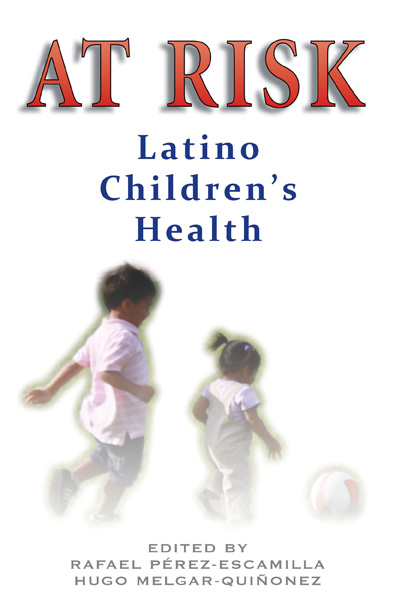According to the United Nations, the United States spends more per capita on health care than any other nation in the world, yet ranks 42nd in life expectancy. Obesity—and its impact on chronic conditions such as hypertension, type 2 diabetes, and even asthma—contributes to this unfortunate situation. Experts agree that if the current obesity trends are not overturned, today’s children will be the first to have a life expectancy shorter than their parents.
In their introduction, editors Rafael Pérez-Escamilla and Hugo Melgar-Quiñonez note that the future of the country’s well-being is closely tied to that of its Latino children. Several social, economic and environmental factors influence children’s health and well-being. Overall, Latinos in the U.S. confront higher levels of poverty and have lower levels of education and English-language proficiency. Because of financial instability, they have less access to healthy foods and health care services. In 2009, almost 35% of Latino children lived in households that experienced food insecurity, and obesity and diabetes are rampant in the community.
Written by the country’s leading experts in Latino children’s health, the ten articles included in this landmark volume examine the key issues that affect the well-being of the fastest growing segment of the U.S. population. Important topics influencing Latino children’s health that are covered include an evaluation of environmental issues such as unsafe housing, lack of access to healthy foods and safe playgrounds in low-income neighborhoods; the causes and adverse effects of obesity and ways to prevent this condition through school nutrition programs; an economic analysis of treating and preventing type 2 diabetes; and substance abuse in Latino youth. In each chapter, the major challenges and problems are outlined, and policy and programmatic changes are suggested.









